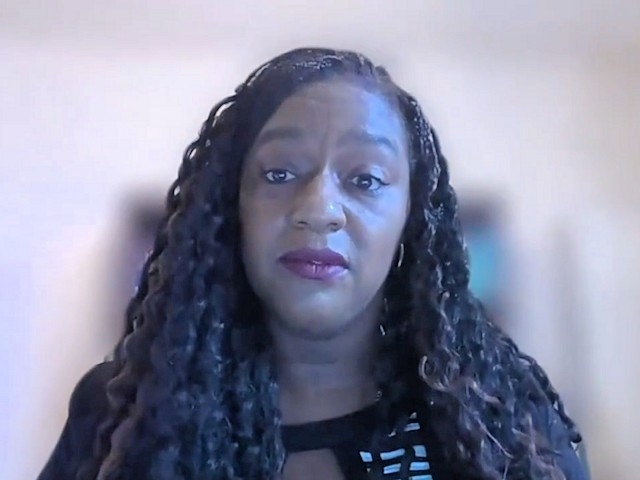Race equality panel chair says GMP is ‘institutionally racist’ on release of police powers report
Date published: 28 July 2021

Elizabeth Cameron, chair of the Greater Manchester Race Equality Panel
Greater Manchester Police is ‘institutionally racist’ according to the chair of a panel scrutinising its record, which found it was nearly six times more likely to Taser a black person than a white person.
Elizabeth Cameron, chair of the Greater Manchester Race Equality Panel, has suggested that the disproportionate use of police powers ‘goes beyond unconscious bias and into the realms of racism’, while also expressing concerns about the lack of ethnic minority representation within the force’s ranks.
Stephen Watson, the chief constable of GMP, has denied that the force was institutionally racist, but admitted that it was likely that it could employ ‘somebody who behaves in a racist way’.
They would be ‘rooted and booted out’ out of the force, the chief told a press conference marking the release of its race equality report today.
The report revealed that black people in Greater Manchester were 5.7 times more likely to have had a Taser used against them, and four times more likely to have been subjected to force.
People who are black, African, Caribbean, and Black British were also found to be almost three times as likely to have been arrested.
Ms Cameron argued that the figures provided in the report were lower than what was being reported ‘on the ground’ and claimed that every black community could point to video footage of men, women and young people being ‘aggressively treated’ by officers.
The chair of the equality panel said “The reason these [videos] are going viral is because they’re people we know, they’re not actors.
“You can’t imagine what it feels like when somebody is spoken to by somebody in authority and the fear at the start of that interaction is where can this go, this can result in my death.”
GMP’s report also revealed that officers were more likely to refer to the physique of black people when justifying a decision to use force against them,
Ms Cameron said this showed that some members of the force were relying on ‘racist tropes’, adding: “It lends itself towards what I call the institutional racism that exists, and it’s undeniable”
“I’m not talking about a police officer here or there, it’s what the organisation then does about it that makes it into institutional racism.
“There are people who fashion their ideas on a stereotype of what a black man means and what they are going to do before they even get a chance to do it.
“That’s what results in deaths in custody, disproportionate sentencing and use of force.”
However, Ms Cameron said GMP had shown ‘excellent examples’ of policing, such as how the force dealt with the Black Lives Matters protests in Manchester last year.
Praise was also given to the force for publishing the report and scrutinising the figures within, leading to calls for other public services to reflect on their own practices.

GMP’s chief constable Stephen Watson suggested that the report could neither prove or disprove Ms Cameron’s assertions around institutional racism, saying that it did not provide all the answers.
On the charge that the force that he took over in May is institutionally racist, Mr Watson said ‘his answer would be no’ though ‘a lot of people think we are’.
He added: “I do not for one second deny that in an organisation which is the thick end of 12,000-strong, we may find ourselves from time to time employing somebody who behaves in a racist way and commits offences.
“But what I do know is that as an organisation when people behave in that way, they are expressly contravening all of the values that we espouse around recruitment, and training and progression.
“What is recognised internally as decent professional conduct and where people do let the wider force down at the expense of the public, we will root them out and we will boot them out, and we do that institutionally.”
More than 740 officers – around nine per cent of GMP – are black or Asian, and Ms Cameron called on the force to strive to recruit people from more diverse backgrounds.
The chair of the race equality panel said those serving members were ‘giving an acceptable face to an organisation that people themselves don’t’ feel is serving them’.
Ms Cameron added: “I have a two-year-old grandson and I now worry for him and his future as a police force stays as it is.”
In response Mr Watson accepted that black and Asian people were more distrustful of GMP than other communities and that the force needed to ‘work harder’ to become ‘much more closely intertwined’ with them.
The chief constable said: “We are recruiting like billy-o so if I can put out a plea to people from all communities, including and especially our black community, to give it a go.
“The organisation that I lead wants the best and the brightest from every community and we are determined to be a really inclusive, positive employer.”
The report in full: Achieving Race Equality Report
Niall Griffiths, Local Democracy Reporter
Do you have a story for us?
Let us know by emailing news@rochdaleonline.co.uk
All contact will be treated in confidence.
Most Viewed News Stories
To contact the Rochdale Online news desk, email news@rochdaleonline.co.uk or visit our news submission page.
To get the latest news on your desktop or mobile, follow Rochdale Online on Twitter and Facebook.


